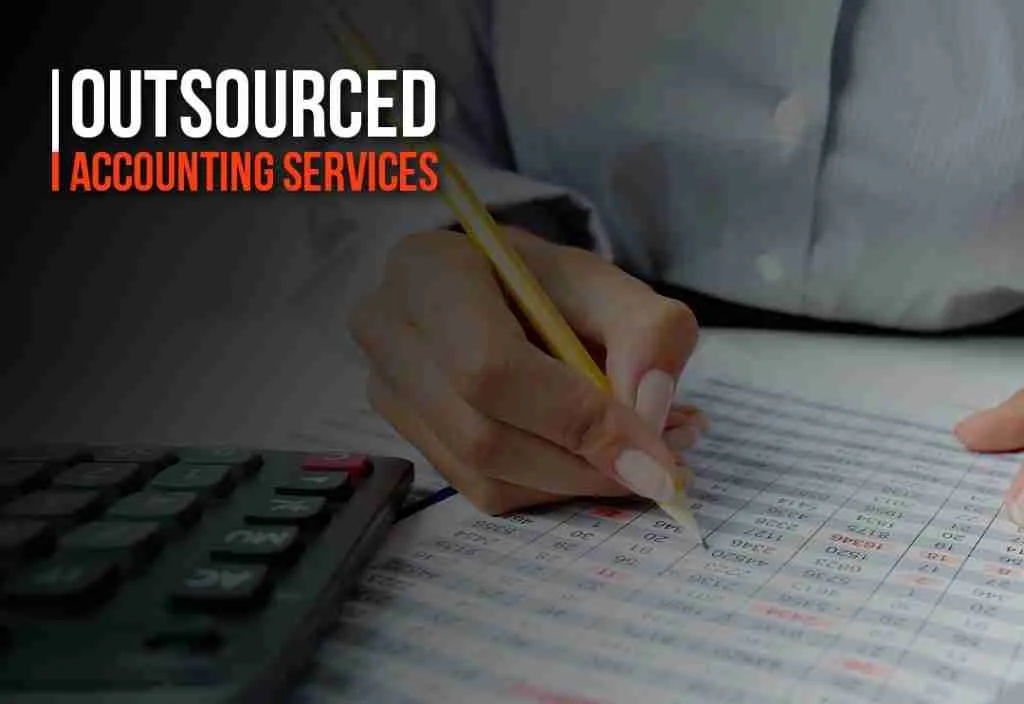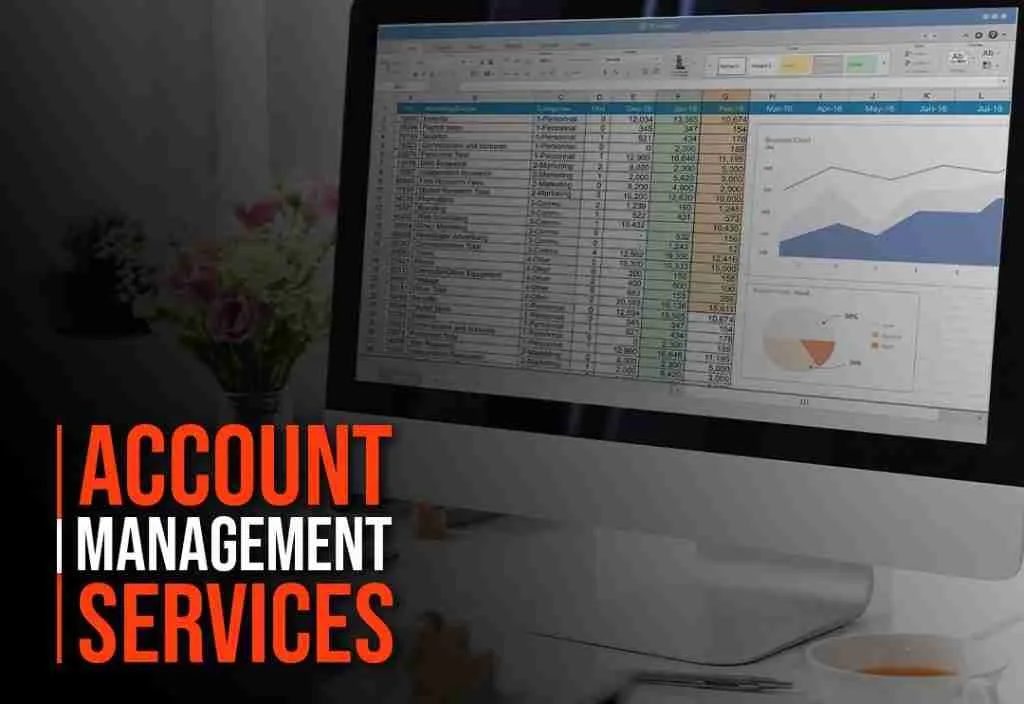In a world where financial accuracy can make or break a business, there’s no room for guesswork. Did you know that 82% of businesses fail due to cash flow problems? Managing financial reporting is a critical task, yet many companies struggle to maintain precision and compliance. This is where outsourcing steps in—not as a backup plan, but as a strategic move that could redefine your business’s financial health. So, if you are looking for a sign to outsource financial reporting services, this is it.
If you’re still juggling spreadsheets and stressing over deadlines, it’s time to rethink your approach.
Why struggle to swim when you can cruise with the right partners?
Whether you’re a startup, a small business, or a large enterprise, managing financial reporting in-house can be both time-consuming and costly.
Outsourcing financial reporting services can be an effective solution to overcome these challenges.
What Are Outsourced Financial Reporting Services?

Outsourced financial reporting services involve delegating financial data management and reporting tasks to third-party professionals or firms.
These services typically include preparing financial statements, budgeting, forecasting, and ensuring compliance with regulatory standards.
Outsourced providers use advanced software tools and expertise to deliver accurate and timely financial reports.
List of Benefits of Outsourcing Financial Reporting Services

- Cost Efficiency: Outsourcing financial reporting can significantly reduce overhead costs associated with hiring, training, and retaining in-house financial staff. Businesses can also save on software and technology investments needed for financial reporting.
- Access to Expertise: Outsourced financial reporting firms employ professionals with specialized knowledge and experience in financial management. This ensures that your financial reports are prepared by experts who stay updated with the latest regulations and industry standards.
- Focus on Core Business Activities: By outsourcing financial reporting, companies can free up valuable time and resources to focus on core business activities, such as product development, marketing, and customer service. This leads to improved operational efficiency and business growth.
- Scalability: Outsourced services can easily scale with your business needs. Outsourced providers can adjust their services accordingly if you need more complex reporting as your business grows or a temporary solution during peak seasons.
- Risk Mitigation: Outsourcing reduces the risk of errors, non-compliance, and fraud in financial reporting. Outsourced firms implement stringent quality control measures and are often well-versed in the latest regulatory requirements, ensuring that your financial reports are accurate and compliant.
- Timely Reporting: Outsourcing ensures that financial reports are prepared and delivered on time, which is crucial for making informed business decisions and maintaining good relationships with stakeholders.
How Do We Outsource Financial Reporting Services Step by Step?

- Assess Your Business Needs: First things first, determine the scope of financial reporting services your business needs. This could range from basic bookkeeping and financial statement preparation to more complex tasks like financial analysis and forecasting. So, assess them carefully.
- Research Potential Providers: Then, look for reputable financial reporting service providers with a proven track record. Consider factors such as experience, expertise, client reviews, and industry certifications. It’s also essential to check if the provider has experience working with businesses similar to yours.
- Evaluate Technology and Tools: Ensure that the outsourcing firm uses advanced financial reporting software and tools that integrate seamlessly with your existing systems. This will facilitate smooth data sharing and real-time updates.
- Discuss Compliance and Security: Financial data is sensitive, so it’s crucial to choose a provider that prioritizes data security and compliance with relevant regulations. Ensure they have robust security measures in place to protect your financial information.
- Set Clear Expectations: Establish clear communication channels and set expectations regarding deadlines, reporting formats, and performance metrics. A well-defined service level agreement (SLA) will help ensure that both parties are on the same page.
- Monitor and Review: Regularly review the performance of the outsourced provider to ensure they meet your expectations. Periodic audits and feedback sessions can help maintain the quality of the service and address any issues promptly.
How to Select the Company for Financial Reporting Services?
Here’s how you can identify and select the right partner:
1. Define Your Needs and Goals:
- Service Scope: Determine the specific financial reporting tasks you need help with, whether it’s bookkeeping, tax preparation, budgeting, or financial analysis.
- Business Goals: Align your outsourcing needs with your long-term business objectives. Are you seeking cost savings, specialized expertise access, or scalability?
2. Research and Shortlist Potential Providers:
- Industry Experience: Look for companies with a proven track record in your industry. Experience with businesses similar to yours can be a significant advantage.
- Reputation: Check online reviews, testimonials, and case studies. Client feedback can offer valuable insights into the reliability and quality of the provider’s services.
- Certifications: Ensure the provider has relevant certifications (e.g., CPA, ACCA) and complies with industry standards and regulations.
3. Evaluate Their Technology and Tools:
- Software Compatibility: Ensure the provider uses advanced financial reporting tools that can integrate with your existing systems. This ensures smooth data transfer and reduces the learning curve.
- Data Security: Financial data is highly sensitive, so the provider should use robust security protocols and encryption to protect your information.
4. Assess Their Expertise and Team:
- Qualified Personnel: Look into the qualifications of the team members who will handle your account. A knowledgeable and experienced team is essential for high-quality reporting.
- Continuing Education: Check if the company invests in continuous training for its staff to stay updated with the latest financial regulations and practices.
5. Request Proposals and Compare:
- Service Level Agreement (SLA): Review the SLAs offered by potential providers. This document outlines the scope of services, timelines, and performance metrics.
- Pricing Structure: Compare pricing models—whether it’s fixed fees, hourly rates, or subscription-based—and see which aligns with your budget.
- Customization: A good provider should offer tailored solutions that fit your specific business needs rather than a one-size-fits-all approach.
6. Check References and Past Work:
- Client References: Ask for references and speak directly with past or current clients about their experience with the provider.
- Case Studies: Review case studies that demonstrate the provider’s ability to deliver results in complex financial reporting scenarios.
7. Evaluate Communication and Support:
- Responsiveness: Gauge their responsiveness during the initial stages of communication. A reliable partner should be easily reachable and proactive in addressing your concerns.
- Ongoing Support: Ensure they offer continuous support and have a dedicated account manager who can address any issues that arise.
8. Start with a Trial Period:
- Pilot Project: Before committing to a long-term contract, consider starting with a small project or a trial period to assess the provider’s capabilities and compatibility with your business.
- Performance Review: After the trial, review their performance, adherence to deadlines, and the quality of the financial reports delivered.
How to Reach Out to the Potential Company for Reporting Service?

- Research and Identify Top Prospects: You can use search engines, professional networks like LinkedIn, and industry directories to compile a list of reputable financial reporting service providers in the USA. Or ask for recommendations from business contacts, and peers who have experience with outsourcing financial reporting services.
- Craft a Compelling Outreach Message: Start with a brief introduction of your company and the specific financial reporting needs you are looking to outsource. Clearly outline the scope of services you require, your business goals, and any industry-specific needs. Ask for a detailed proposal, including their approach, pricing, and how they can meet your requirements.
- Utilize Multiple Contact Methods: Craft a professional and concise email that highlights your needs and asks for a follow-up meeting or call. Personalize each email to show you’ve done your research on the company. Sometimes, a direct phone call can be more effective, especially if you want to quickly establish rapport or need immediate answers. Connect with key decision-makers or representatives on LinkedIn. Send a personalized message that introduces your business and outlines your interest in their services. Many companies have a contact form on their website. Use this form to submit your inquiry, ensuring you provide all necessary details.
- Arrange Initial Consultations: Schedule virtual meetings to discuss your needs in detail. This allows for a more personal interaction and helps assess the provider’s professionalism. If feasible, consider meeting in person, especially if the provider is local. Face-to-face meetings can help build trust and establish a stronger working relationship.
- Prepare Insightful Evaluation Questions: Experience and Expertise: Ask about their experience with companies similar to yours and their expertise in handling specific financial reporting tasks Also, inquire about their data security protocols to ensure your financial information will be protected.
- Follow-Up: After the initial meeting, send a follow-up email summarizing key points discussed and expressing your continued interest. This helps reinforce your commitment and keeps the conversation going. In case, you don’t get a response initially, don’t hesitate to follow up through a different channel or after a few days.
- Negotiate Terms and Finalize: After that, carefully review the proposals from different providers. Compare them based on the quality of services, pricing, and how well they align with your business needs. Also, be open to negotiating terms, like pricing, contract length, and specific service details.
- Seal the Deal and Onboard: Lastly, after being satisfied with the terms, sign the contract and make arrangements for the transition of financial reporting responsibilities. Ensure there is a clear onboarding process in place to smoothly transition your financial data and reporting tasks to the new provider.
Best Agency to Outsource Financial Reporting Services in the USA
Every business needs a secure partner when it comes to managing financial accounts. Hence, trust Outsourcing Buddy and let our experts handle the rest.
We don’t just handle your financial reporting but we elevate it. When businesses outsource to us, they’re not just handing over a task; they’re gaining a strategic partner who turns numbers into actionable insights. We dive deep into your financials, ensuring precision, compliance, and clarity. Why struggle with spreadsheets and last-minute audits when you could be focusing on what you do best?
Let us handle the complexities while you steer your business towards growth. With us, financial reporting becomes more than just a necessity—it becomes your competitive edge. Contact us to get your financial reporting on time or explore more details.
When you outsource financial reporting services to us, you get:
- Expert Financial Analysis: Gain access to seasoned financial analysts who provide detailed insights and strategic recommendations based on your financial data.
- Accurate and Timely Reports: Receive meticulously prepared financial statements and reports, delivered on time, every time, ensuring you stay ahead of deadlines.
- Compliance Assurance: Stay compliant with ever-changing regulations and standards, as our team ensures your financial reporting meets all legal and industry requirements.
- Advanced Reporting Tools: Leverage cutting-edge financial reporting software and tools that provide real-time data and seamless integration with your existing system.
- More Bandwidth: After partnering with us, you get more bandwidth for your business to focus on the core activities. In this way, you can focus more on success while we are handling your financial reporting.
- Dedicated Team: Now, work with a dedicated team that’s always available to answer your questions, provide financial updates, and adjust services as needed.
- Complete Synergy: By working with us, you get all departments under one roof. In simple words, from digital marketing to e-commerce operations services to image optimization to video production and much more, you get it all.
Conclusion
Outsourcing financial reporting services can provide businesses with a strategic advantage by offering cost savings, access to experts by offering cost savings, and more. By carefully selecting the right service provider you can effectively leverage these services to enhance your business’s financial management and overall growth.
However, by following the above-mentioned steps you can identify a financial reporting service agency that not only meets your current needs but also grows with your business, ensuring financial accuracy and compliance every step of the way.
With Outsourcing Buddy, you don’t just get a service provider, you get a partner committed to optimizing your financial management. So, schedule a brief meeting today and take a step to move forward.
Frequently Asked Questions
Question: What does outsourcing financial reporting services mean?
Answer: When a company or business hires an external team or a third party outside their own company to perform required tasks is called outsourcing. Whereas, outsourcing financial reporting services includes delegating different financial management tasks. It includes bookkeeping services for small businesses, payroll, tax preparation, financial reporting, and analysis. These third-party experts handle these tasks on behalf of your business, allowing you to focus on other activities.
Question: Is outsourcing accounting a good idea for my business?
Answer: Yes, outsourcing accounting services is an ideal option if you lack in-house team experts, have few resources, facing challenges while hiring talents, or want to prioritize business growth without managing the financial tasks.
Question: Can I outsource financial reporting services tailored to specific business needs?
Answer: Certainly, most outsourcing providers offer customizable solutions tailored to your specific business needs. Whether you need basic financial statements, in-depth analysis, or specialized financial reporting, services can be scaled and adjusted to meet your business needs.
Question: How do I choose the right provider for outsourcing financial reporting services?
Answer: Start by defining your needs and goals, then research potential providers’ experience, reputation, and technological capabilities. Look for companies with strong client reviews, relevant industry expertise, and robust security practices. It’s also important to request references and evaluate proposals carefully before making a decision.
Question: What is the process of transitioning financial reporting tasks to an outsourcing provider?
Answer: The transition process typically involves an initial consultation to understand your business needs, followed by setting up secure data transfer protocols. The provider will then integrate their systems with yours, ensuring a seamless flow of financial information. Regular communication and a detailed onboarding plan help ensure a smooth transition and ongoing success.


